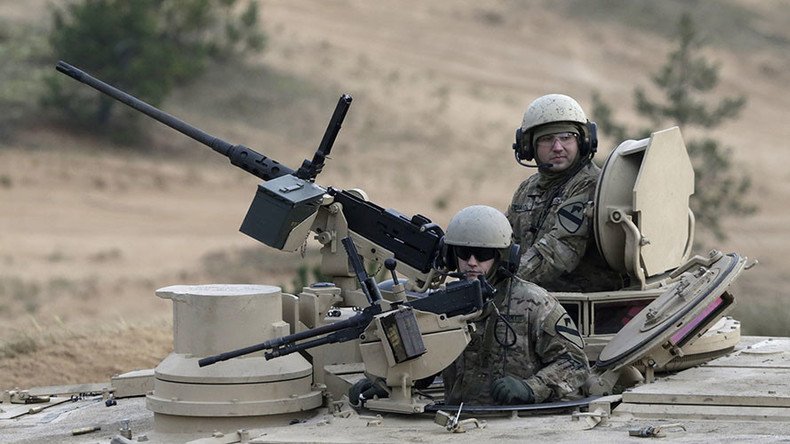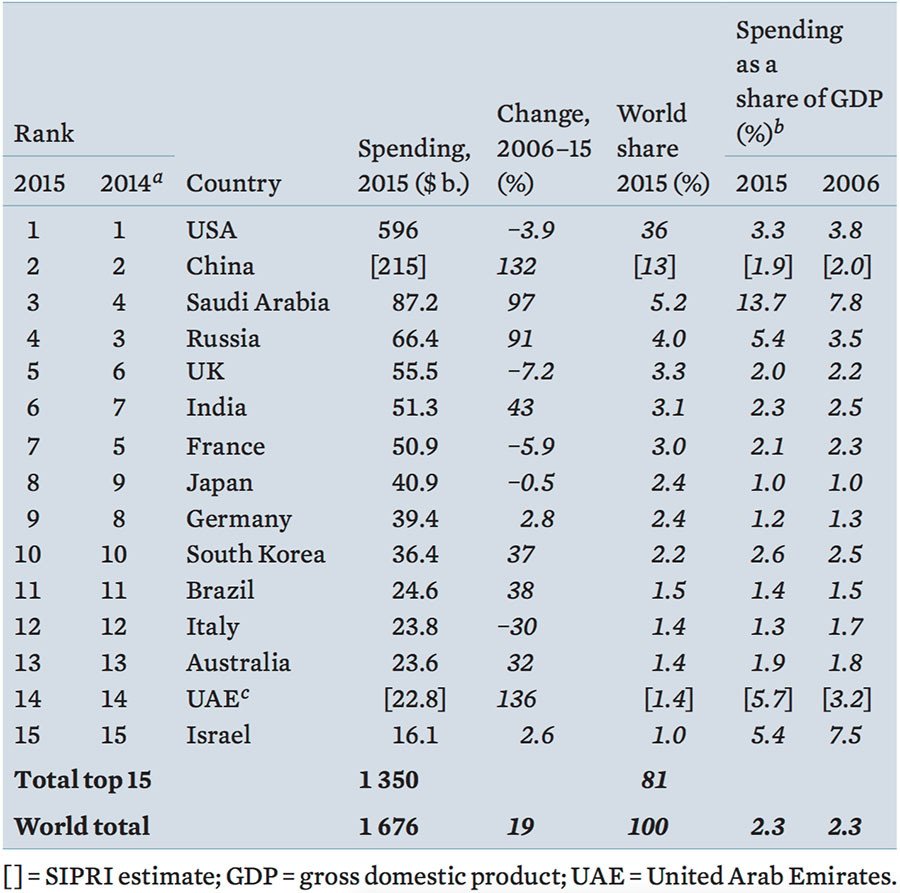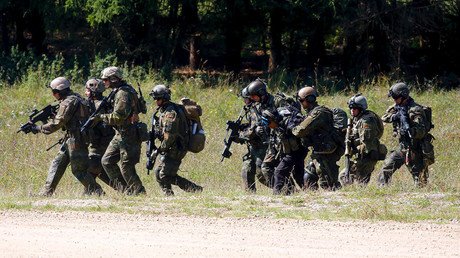World military spending grows to $1.7tn in 2015 - Swedish think tank

The US defense budget at $596 billion still makes it the world’s largest military spender, nearly three times second place China with $215 billion, according to a report from the Stockholm International Peace Research Institute (SIPRI).
The US military expenditure fell 2.4 percent last year, the slowest pace since 2011. Despite this, Washington still spends 36 percent of the world’s total arms budget.

Ruble depreciation has pushed Russia from the top three. Saudi Arabia overtook Russia’s position, spending $87.2 billion on its military program last year, compared to Moscow’s $66.4 billion.
SIPRI has tracked a large increase in spending by countries bordering Russia and Ukraine—namely Estonia, Latvia, Lithuania, Poland, Romania and Slovakia.
Spending in Western Europe contracted 1.3 percent, but the authors of the research have noticed it has been the lowest annual decline since 2010 which marked the beginning of the fall in spending.
The world’s overall military expenditure grew by one percent last year, reaching $1.7 trillion.
The most dramatic oil revenue-related reductions in spending in 2015 were seen in Venezuela (–64 percent) and Angola (–42 percent). SIPRI also reports a decrease in military spending in Bahrain, Brunei, Chad, Ecuador, Kazakhstan, Oman and South Sudan.
“Military spending in 2015 presents contrasting trends. On the one hand, spending trends reflect the escalating conflict and tension in many parts of the world; on the other hand, they show a clear break from the oil-fuelled surge in military spending of the past decade. This volatile economic and political situation creates an uncertain picture for the years to come,” said SIPRI’s Dr Sam Perlo-Freeman, who’s in charge of the research.













